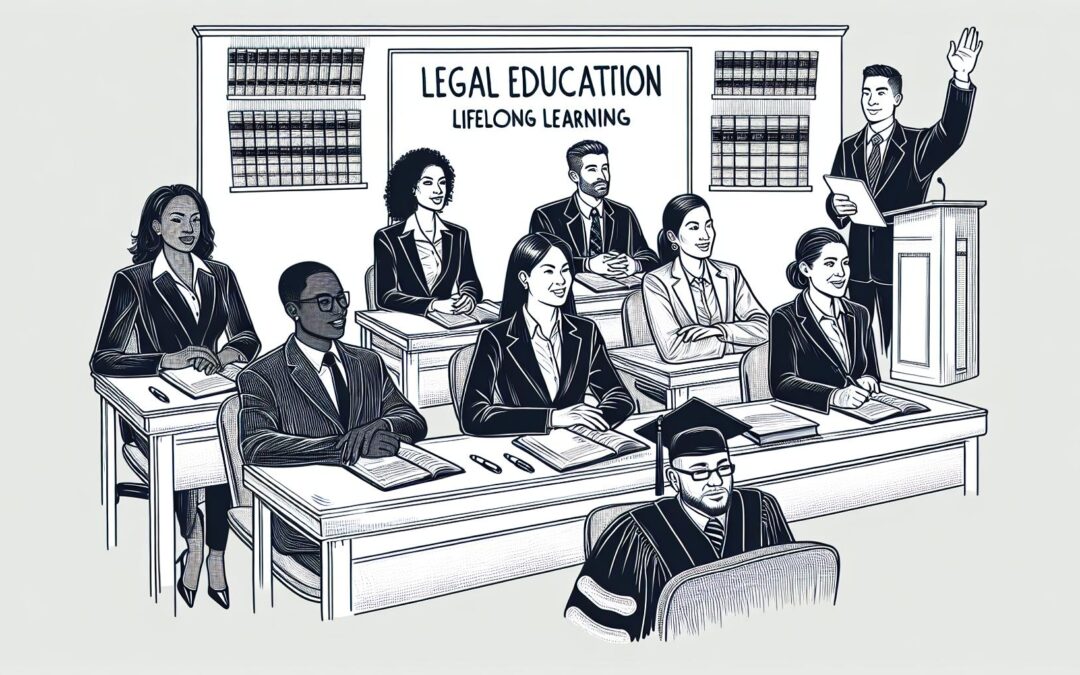In the world of intellectual property, there are numerous terms and concepts that can sometimes be confusing. One such term is a canceled claim in a patent. To truly understand what this means and its significance, it is important to have a solid understanding of intellectual property as a whole.
Understanding Intellectual Property: A Brief Overview
Intellectual property refers to creations of the mind, such as inventions, designs, literary and artistic works, and symbols, names, and images used in commerce. It is a broad term that encompasses various types of intangible assets that individuals or organizations may create.
Intellectual property plays a critical role in our modern society. It encourages innovation and creativity by legally protecting the rights of the creators or owners. These protections grant exclusive rights, allowing them to profit from their creations and prevent others from using their intellectual property without permission.
The Importance of Intellectual Property
The importance of intellectual property cannot be overstated. It provides an incentive for individuals and companies to invest time, effort, and resources into developing new ideas and creations. Without the protection of intellectual property rights, there would be little to no motivation for innovation.
Additionally, intellectual property rights help to foster competition and drive economic growth. By encouraging the development and commercialization of new ideas, intellectual property rights contribute to the advancement of industries and the overall progress of society.
Furthermore, intellectual property rights also play a crucial role in international trade. They allow businesses to protect their products and services from unauthorized use or imitation, ensuring fair competition and the ability to expand into global markets.
Moreover, intellectual property rights promote cultural diversity and the preservation of traditional knowledge. They enable indigenous communities to protect their traditional practices, folklore, and traditional medicines from exploitation or misappropriation.
Different Types of Intellectual Property
There are various types of intellectual property, each offering different forms of protection. The four primary categories of intellectual property are patents, trademarks, copyrights, and trade secrets.
A patent is a form of protection granted to inventors for their new inventions, providing them with exclusive rights to produce, use, and sell their invention for a limited period of time. Patents not only encourage innovation but also facilitate the sharing of knowledge by requiring inventors to disclose their inventions to the public.
Trademarks, on the other hand, protect brand names, logos, and other distinctive signs that identify and distinguish goods or services. They help consumers recognize and differentiate between products or services in the marketplace, promoting consumer trust and preventing confusion.
Copyrights, on the other hand, protect original literary and artistic works, including books, songs, paintings, and films. They give creators the exclusive right to reproduce, distribute, and publicly display their works, encouraging the creation of diverse cultural expressions and ensuring artists are rewarded for their creativity.
Lastly, trade secrets refer to confidential information, such as formulas, processes, or any other information that gives a business a competitive advantage. Unlike patents or trademarks, trade secrets do not require registration and rely on maintaining secrecy to protect valuable business information.
In conclusion, intellectual property rights are essential for promoting innovation, economic growth, fair competition, cultural diversity, and the protection of valuable business information. Understanding intellectual property and its various forms of protection is crucial for individuals, businesses, and society as a whole.
The Concept of Patent in Intellectual Property
Within the realm of intellectual property, patents hold a special place. They provide inventors with exclusive rights to their inventions, protecting their innovations from unauthorized use. Understanding the role of patents in intellectual property is crucial to comprehending the concept of a canceled claim.
The Role of Patents in Protecting Innovations
Patents play a vital role in protecting innovations by providing inventors with legal rights and preventing others from using, making, or selling their inventions without permission. The grant of a patent ensures that inventors have a limited period of exclusivity to commercially exploit their inventions, encouraging further research and development.
Furthermore, patents not only safeguard the interests of inventors but also contribute to the progress of various industries. They encourage the sharing of knowledge and promote the dissemination of technological advances. In this way, patents benefit society as a whole, driving innovation and fostering growth.
For instance, consider the field of medicine. Patents incentivize pharmaceutical companies to invest in research and development to create new drugs. By protecting their inventions, these companies can recoup their investments and continue to fund the development of life-saving medications. Without patents, the incentive to invest in costly research would be significantly diminished, potentially hindering advancements in medical treatments.
The Process of Patent Registration
Securing a patent for an invention involves a complex process that varies from country to country. Typically, inventors need to file a patent application with the relevant intellectual property office, providing a detailed description of the invention and its technical specifications.
Upon submission, the patent application undergoes a thorough examination by patent examiners to determine its novelty, usefulness, and inventive step. These examiners possess expertise in the respective field of the invention and carefully assess whether the claimed invention meets the necessary criteria for patentability.
If the patent application meets the requirements, a patent is granted, and the inventor receives exclusive rights to their invention for a specified period, typically 20 years. This exclusivity allows inventors to commercialize their inventions without fear of competitors infringing on their rights.
During the examination process, patent claims are crucial. They clearly define the scope and boundaries of the invention, ensuring that the inventor’s rights are properly protected. Patent claims provide a detailed description of the invention’s elements and its unique features.
However, not all claims make it to the final granted patent. Some claims may be canceled or rejected during the examination process, leading to a canceled claim. This can occur if the patent examiner finds that certain claims lack novelty or inventive step, or if they overlap with existing patents or prior art.
It is important to note that a canceled claim does not invalidate the entire patent. Instead, it means that specific claims within the patent have been deemed unpatentable. The remaining claims that meet the patentability requirements remain in force, providing the inventor with the protection they need.
In conclusion, patents are a crucial aspect of intellectual property, providing inventors with exclusive rights to their inventions. They protect innovations, encourage further research and development, and contribute to the progress of various industries. The process of obtaining a patent involves a thorough examination of the invention, with patent claims playing a significant role in defining the scope of protection. While some claims may be canceled during the examination process, the overall purpose of patents remains intact – to incentivize innovation and foster growth.
What is a Canceled Claim in a Patent?
A canceled claim refers to a claim that has been removed or invalidated during the examination process of a patent application. Claims are typically canceled for various reasons, which can have significant implications for the patent holder and the overall patent.
Definition and Explanation of a Canceled Claim
A claim in a patent is a legal statement that defines the scope of an invention. It specifies the elements or features that make the invention novel and unique. Each claim is meticulously drafted to protect the inventor’s rights and ensure exclusivity over their invention.
However, during the examination process, patent examiners may find prior art or evidence that renders a claim unpatentable. In such cases, the examiner may initiate a process to cancel the claim, removing it from the final granted patent.
Reasons for a Claim Cancellation
There are several reasons why a claim may be canceled during the examination process. One common reason is that the claim may lack novelty, meaning the invention is not new or unique compared to existing prior art. If the examiner finds prior art that discloses the same or similar invention, the claim may be canceled.
Another reason for claim cancellation is that the claim may lack an inventive step. This means that the invention is considered obvious to someone skilled in the field of the invention. Claims that are vague, ambiguous, or overbroad may also be canceled as they fail to meet the requirements for patentability.
The Impact of a Canceled Claim on a Patent
A canceled claim can have significant implications for both the patent holder and the overall patent itself. Understanding the impact of a canceled claim is crucial for inventors and individuals involved in intellectual property matters.
How a Canceled Claim Affects the Patent Holder
When a claim is canceled, it narrows the scope of protection granted by the patent. This means that the patent holder may no longer have exclusive rights over certain aspects of their invention, potentially limiting their ability to prevent others from using or commercializing similar technology.
The canceled claim can also affect the enforceability of the patent. If the canceled claim forms a crucial part of the patent’s validity or value, it may undermine the overall strength of the patent, making it less attractive for licensing or asserting against potential infringers.
The Legal Implications of a Canceled Claim
The legal implications of a canceled claim can be far-reaching. A canceled claim can result in disputes over infringement and licensing agreements. It may also affect ongoing litigation where the canceled claim is a central point of contention. Parties involved in such disputes may need to reassess their positions and potentially negotiate new terms in light of the claim cancellation.
Case Studies of Canceled Patent Claims
To better understand the real-world impact of a canceled claim, it is valuable to examine notable examples where patent claims have been canceled. These case studies shed light on the complexities and consequences of canceled claims in the field of intellectual property.
Notable Examples of Canceled Patent Claims
One notable example of a canceled patent claim is the case of Apple Inc. vs. Samsung Electronics Co., Ltd. In this high-profile patent infringement lawsuit, numerous claims were canceled or found invalid, impacting the scope of Apple’s patent and the overall litigation strategy.
Another example is the patent for the drug Lipitor. During the examination process, several claims were canceled, limiting the exclusivity of the patent and subsequently opening the way for generic versions of the drug.
Lessons Learned from Canceled Claims
Canceled claims serve as valuable lessons for inventors and intellectual property practitioners. They highlight the importance of drafting robust and well-defined claims that can withstand the scrutiny of patent examiners. Additionally, canceled claims underscore the need for thorough prior art searches and comprehensive patent strategies to strengthen the overall value and validity of a patent.
In conclusion, understanding the concept of a canceled claim in a patent is crucial for individuals involved in intellectual property matters. By grasping the complexities and implications of canceled claims, inventors can navigate the patent system more effectively, protecting their innovations and maximizing the value of their intellectual property.











